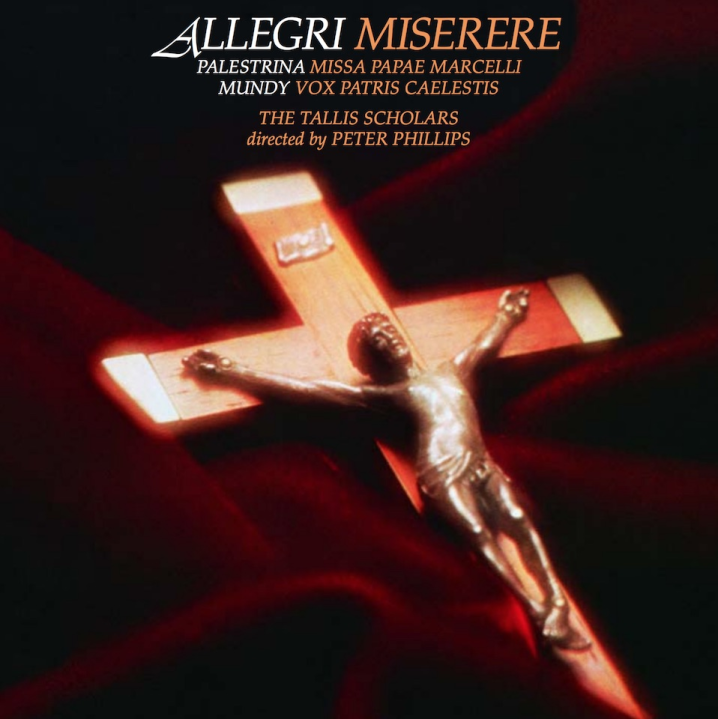
SotD: Allegri’s Miserere

The work’s title is really just Miserere (“have mercy on us”), but since so many composers have asked for mercy, and since Gregorio Allegri was sort of a one-hit wonder, everybody says it like in the title above. I think that we can each use all the divine mercy we can get, but maybe your need is less than mine. The (Latin, of course) text is Psalm 51. It’s a little over twelve minutes of simple soaring melody, built of a short choral fragment repeated five times, with a variation last time around. It’s got a colorful history.
This Miserere was apparently written in 1638 for the Catholic church and became regarded as what today we’d call “Intellectual Property” of the Vatican; a Pope forbade that it be performed anywhere but in the Sistine Chapel, and also that no copies of the music could leave the Chapel. The story goes (apparently with supporting evidence) that it was stolen by the pre-teen Mozart on tour with his father, who attended a service in the Chapel then went back to the hotel and wrote it down. This is impressive but maybe not as insane as it sounds; remember, it’s a single musical fragment between two and three minutes long, repeated five times with one variation.
Anyhow, the Mozart family passed the music along, and a few centuries later it’s become a choir-concert chestnut. I’ve never heard a live performance in a church; it’s written for two choirs, one of five voices and one of four, singing a considerable distance (physical I mean) apart, against each other and finally in unison.
There’s a write-up at Medium that offers more chapters in the story, including how it came to have the famous passage where the high voice leaps up and up to an almost-unbearable summit, then descends gracefully like a leaf in the wind. This may have been originally performed by castrati, and these days is conventionally sung by a boys’ choir, because of their ethereal high notes.
The recording I have, and heartily recommend, is a 1980 outing by the Tallis Scholars, with the high part sung by soprano Alison Stamp not a gaggle of boys; her voice rich not ethereal. Here’s the the link on the Gimmell record label site, which in turns links to Hyperion’s site which itself links to the original CD liner notes, full of juicy info about the work and performers.
The recording also has Palestrina’s excellent Papal Mass and is really great end-to-end.
This is entry 100 in the Song of the Day series (background).
Links · Spotify playlist. This music on Amazon, where they want to sell it as eleven segments, so get the album; on iTunes (similar story), and Spotify (album link). Now, as for live video, this has sort of become a trademark of the Oxford Kings College Singers (with boys); here they are. But I recommend Ars Nova Copenhagen, a small adult ensemble; each singer inhabits his or her part entirely. The men get an infinitely-deep Gregorian-chant vibe particularly on the Latin “e” vowel, and the soprano smiles as she leaps to that big high C, a wrinkling of her forehead the only giveaway that she’s going to a place that very few humans can reach. It’s a thrill to watch.
Comment feed for ongoing:
From: Leo T (Apr 10 2018, at 03:12)
It's an awesome piece of music. Appropriately enough, it's shortly after Easter, and one of the churches I attend uses this piece in their Holy Week ceremonies.
Performed by the Lassus Scholars (led by Dr Ité O'Donovan), it helps deepen my appreciation of what we're commemorating. Indeed, it's a shining example of the quote (mis)-attributed to Augustine - he who sings, prays twice.
[link]
From: IC (Apr 10 2018, at 14:31)
The Sixteen's interpretation is pretty good too: https://www.youtube.com/watch?v=fcWo1hKHu40
Also, its story in BBC's Sacred Music documentary: https://www.youtube.com/watch?v=I85BrIMUhZA
[link]
From: David Magda (Apr 10 2018, at 19:03)
Speaking of vocal works: will there be any Rachmaninoff Vespers or the Liturgy of St. John Chrysostom? (Of course he has many other wonderful works.)
Though the twentieth century was supposedly more secular (certainly in relative terms), some astounding religious composers have been around: the above, Pärt, Górecki, John Tavener (e.g., "Song for Athene").
[link]